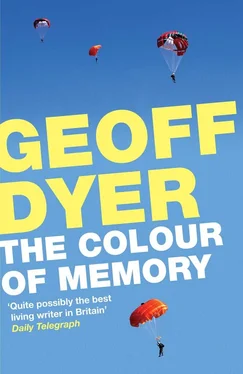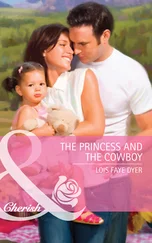Over all this, over the pedestrians and cars in the street, over the traffic on the flyover and the train on the railway bridge, luminescent storm clouds were moving slowly towards us, moving even more slowly than the heavy passenger plane climbing through the thick grey air in the distance.
We waited for it to rain. Someone’s beer can toppled from the balcony. It took a long time to fall and then slopped noisily on to the damp concrete yard below. From inside came the thump of music and the heat of bodies dancing. I felt the cooling evening on my face.
Looking down at the steady flow of people, traffic and trains I became aware of an odd quality of calm in the hurtling kinesis of the city. By repeating itself over and over, day after day, this same configuration of traffic — the precise pattern of lights varying according to the season — had acquired the constancy of sky and clouds, day and night.
We waited for the rain. The sky was like a tarpaulin sagging beneath the weight of water. The air was full of the damp crackle of electricity. Thunder prowled the sky.
Monica and I said goodbye to everyone and made our way through the trashed kitchen and the beer cans, bottles and glasses. Down in the street we waved to the people on the balcony and they waved back. After we’d walked for a couple of minutes I looked back and waved again.
We could hear the traffic rumbling overhead as we passed under the Westway. Cars swarmed past. There were a lot of people around. Cyclists in bright shirts and shorts pedalled past. It felt warmer in the street than it had up on the balcony. The pavements were warm. The street-lights, the neon lights of shop signs and the harsh glare of their interiors, the red stream of brake-lights — all of these intensified the blue night of the sky. A group of teenagers, one of them with a big ghetto blaster on his shoulder, moved apart to let us walk between them. My arm was around Monica’s shoulders; her hand was around my waist resting on my hip. She sipped from a last can of lager, warm now. Some strands of hair had come loose from under her scarf. Our hips bumped accidentally from time to time. When I turned to speak to her I could smell her neck and her hair.
‘That shirt!’ she said.
‘I know. It’s terrific isn’t it?’ I’d bought a shirt from Freddie, pale yellow and very big with splashes of a black print.
‘Don’t you like it?’ I said.
‘Well I don’t think I’ve ever seen one quite like it before.’
‘Yeah I was thinking maybe it wasn’t such a good buy after all. I overheard Freddie at the party saying to Foomie: “No, I sold it to him” and laughing.’
Monica shook her head and smiled, ‘That’s some shirt.’
We turned left and crossed over All Saints Road. My skin felt warm and dirty from the sun, my feet sweaty in old sneakers. Monica sipped her beer again and I noticed how small her fingers were, hardly big enough to get round the can.
Some trees still had blossom on them. Two women jogged past in shorts and running vests. A sports car was caught up in the traffic. An Asian family with several smartly-dressed kids walked past. A black couple, the man carrying a sleepy child wearing a big red baseball cap walked slowly by.
‘As soon as we’ve put Marcus to bed you get in the bath and I’ll bring you your tea in,’ she said to the man. He said something and she laughed and hit him lightly on the arm. I think they were almost home.
It was an evening when no one wanted to do anyone else any harm. No one wanted to fight or hassle anybody. When people bumped into each other they said sorry and smiled because it didn’t matter. It was an evening when people wanted to notice the trees and the stars that shone through them, they wanted to smell the blossom in the night air and feel the heat coming off the earth. People were in no hurry to be home but when they got back they’d take a bath and go to bed with the warm night air blowing through the windows and touching the curtains, remembering other times like this.
After the tube ride we walked to the door of Monica’s block. I kissed her cheek and touched the back of her neck with my hand. She touched the buttons on my shirt and smiled.
The four of us — Carlton, Steranko, Freddie and I — walked over to Brockwell Park for the second day of the Country Fair. Trees fanned the wind under a blue and white Battle of Britain sky. When the sun passed behind a cloud it was disappointing and slightly chilly; when it emerged the grass flared up brightly again from under the dull carpet of shadow.
On the edge of the park we saw a young family: the man and woman were our age, maybe slightly older; the kid was about three or four or however old they are at that age. The couple hid from the child in the long grass and then — when he was wondering where they were and was probably on the brink of tears — they sprung up from behind the long grass and shouted ‘Boo!’ so that instead of bursting into tears the child let out a delighted shriek of happiness.
‘Jesus,’ said Steranko. ‘How can any intelligent adult enjoy the company of children?’
‘There’s a baby boom going on right beneath our eyes,’ said Freddie as we continued on our way.
As the fair had expanded over the years so its rustic element had been getting smaller and smaller. There were pigs, donkey rides, horses and other farm animals but in a few years’ time it seemed likely that a couple of piles of plastic dung and a hologram of a tractor would be all that remained of the fair’s rural impulse.
We walked round stalls for local associations and societies, political organisations like the Nicaraguan Solidarity Campaign, the Anti-Apartheid group, El Salvador support group, all selling T-shirts and pamphlets, badges and books. Various bits of Lambeth Services had lots of stalls and displays: a group of young black and white guys in blue overalls sipped beer from cans and knocked together the wooden frame of a house. Two rastafarians sold prints of Bob Marley and Burning Spear and red, yellow and green patterned T-shirts and wristbands.
Inside a long, bright marquee the more sedate societies had their stalls: the Lambeth Chess Club (Carlton played a game and lost in about eight moves), the Painting Group, Photographic Society and Bridge Club (Carlton claimed he was a good bridge player too). At the end of the tent was the Lambeth Literacy Society.
‘Here you go Freddie,’ Carlton said. ‘The Lambeth Literary Group — just your scene.’
‘If you weren’t illiterate you’d see it says Literacy not Literary.’
‘Even better I’d’ve thought.’
We made our way over to the main stage where a high-life band were playing, accompanied by twenty women in kangas who danced to the music. It was gentle, catchy music. A few people in the crowd were dancing and swaying. The brightness of the sun and the blackness of the stage made it difficult to see the band clearly except for a guitarist and a couple of men playing elaborate banks of percussion instruments. By the side of the stage a giant video screen the size of a terraced house showed close-ups of the musicians and dancers. The camera zoomed in on their faces or their hands and then panned back a little to show three or four dancers at once. I found myself spending more time watching the video screen than the stage. The video looked more real, more authentic than the people on stage. The dancers and musicians looked as if they were playing at the Country Fair in Brockwell Park; the pictures on the video screen looked as if they were being broadcast live by satellite from Harare or Lagos.
When the band finished their set we walked to the beer tent which had an atmosphere all of its own. Impatient to get to the bar people waved fluted fivers at the bar staff; the smell of beer sank slowly to the ground. Steranko bought four pints of real ale in imitation glasses and we sat outside where people were crashed out on the grass or arguing about whose round it was. When we’d finished these I bought four more and then we lay on the grass and argued about whose round it was.
Читать дальше












